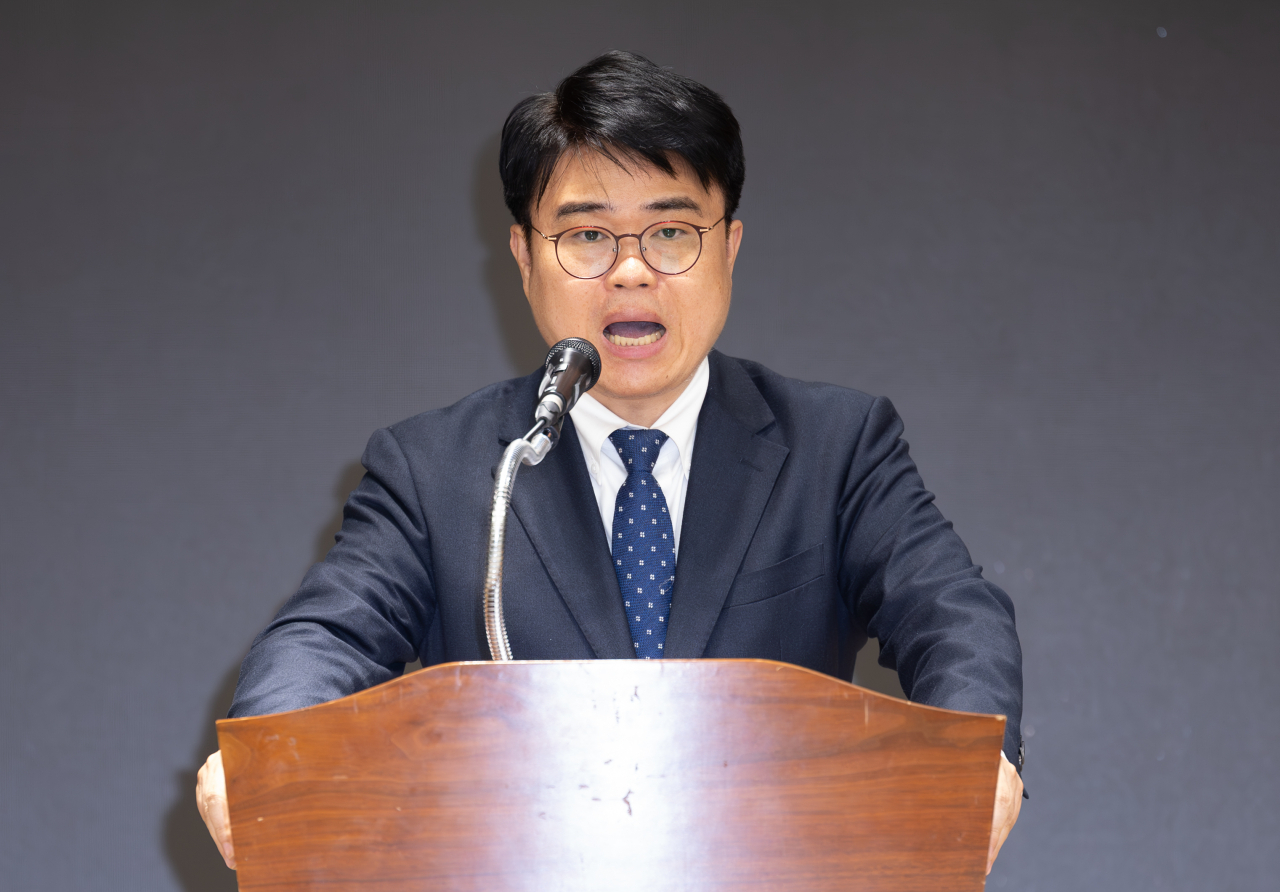Doctors' group picks new leader amid tense standoff over increased enrollment quota
By YonhapPublished : March 26, 2024 - 20:49

A major lobby group of community doctors picked a new leader Tuesday as a prolonged walkout by junior doctors over a medical school enrollment quota continued to disrupt services at major hospitals.
Lim Hyun-taek, head of the Korean Pediatric Association, was elected to be the new leader of the Korean Medical Association (KMA), which represents some 100,000 community doctors.
Lim won 65.43 percent of the vote in the final round of voting by members of the KMA, beating Joo Soo-ho, the chief KMA spokesperson, who garnered 34.57 percent, according to the association.
His three-year term will begin on May 1.
Lim's election is certain to further intensify the standoff with the government, as he has argued the number of medical school admission seats must be reduced and the KMA will not sit down for talks unless the government fires Vice Health Minister Park Min-soo.
More than 90 percent of the country's 13,000 trainee doctors have been on strike in the form of mass resignations since Feb. 20 to protest the government's decision to increase the medical school enrollment quota by 2,000 seats from the current 3,058.
The KMA's hard-line stance contrasts with another group of medical professors, called the Medical Professors Association of Korea, which vowed to play a mediator role between the doctors' community and the government amid the deadlock.
Nevertheless, medical professors, who are senior doctors at major university hospitals, also started submitting resignations en masse this week, although they pledged to remain at work for the time being.
The government is pushing to increase the admission quota to address a shortage of doctors, particularly in rural areas and essential medical fields, such as high-risk surgeries, pediatrics, obstetrics and emergency medicine.
But doctors argue the quota hike would compromise the quality of medical education and services and create a surplus of physicians, stating the government must devise ways of better protecting them from malpractice suits and extending compensation to induce more physicians to practice in such "unpopular" areas. (Yonhap)












![[Kim So-hyun] The quiet taxi driver from Paris](http://res.heraldm.com/phpwas/restmb_idxmake.php?idx=644&simg=/content/image/2024/04/25/20240425050891_0.jpg&u=)







